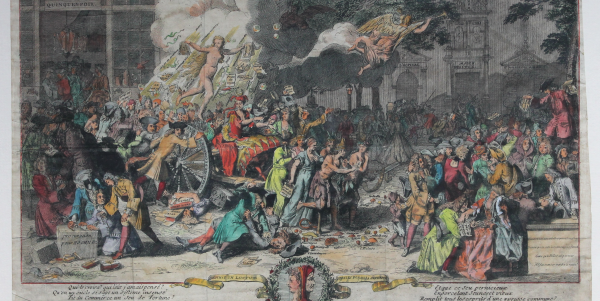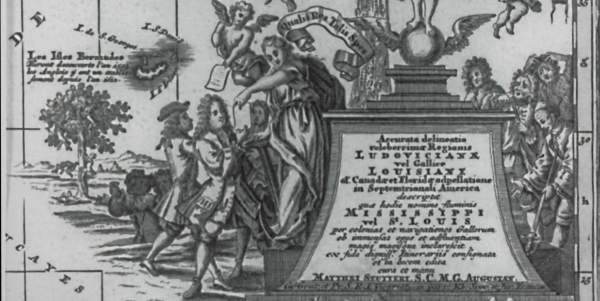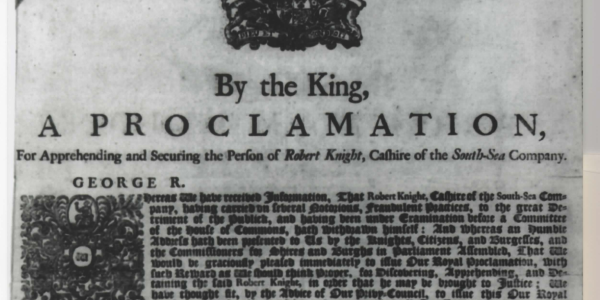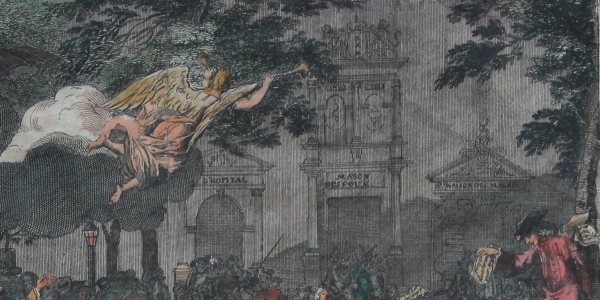Cynical Capitalist
The portfolio, snapshots of memorabilia and artifacts in the collection
Famous Bubbles
Kipper und Wipper, literally 'Tipper and See-saw' is the name given to a financial crisis during the start of the Thirty Years' War (1618–48).
Starting around 1621, city-states in the Holy Roman Empire began to heavily debase currency in order to raise revenue for the Thirty Years' War,
as effective taxation did not exist. The name refers to the use of tipping scales to identify not-yet-debased coins, which were then taken out
of circulation, melted, mixed with baser metals such as lead, copper or tin, and re-issued.
South Sea Bubble
The South Sea Company was a British company founded in 1711 to consolidate and reduce the cost of national debt. The company was also granted a monopoly to trade with South America,
hence its name. At the time it was created Britain was involved in the War of the Spanish Succession and Spain controlled
South America. There was no realistic prospect that trade would take place and the company never realised any significant
profit from its monopoly. Company stock rose greatly in value as it expanded its operations dealing in government debt,
peaking in 1720 before collapsing to little above its original flotation price.
Mississippi Bubble
The "Mississippi Company" (of 1684) became the "Company of the West" (1717) and expanded as the"Company of the Indies" (1719).
This corporation held a business monopoly in French colonies in North America and the West Indies, exaggerated the wealth of Louisiana with an effective marketing scheme, which led
to wild speculation on the shares of the company in 1719. The "bubble" burst at the end of 1720, when opponents of the financier attempted
en masse to convert their notes into specie, forcing the bank to stop payment on its paper notes.




